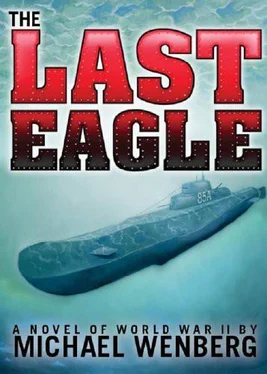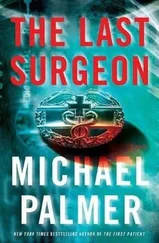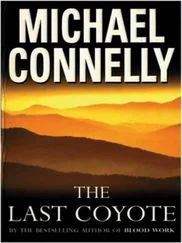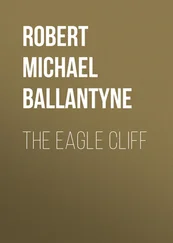Stefan would pay, too.
After she cleaned his mouth, she grabbed him by the shoulders and said the words that would become his one commandment: “You must fight back!”
And so, Stefan learned—as did his enemies. When he fought, he became a child possessed, a boy with nothing to lose because he had nothing. He soon discovered that that gave him the advantage. They, of course, had to explain bloody noses, torn clothes, soiled faces to their parents. He did not. He never picked fights, but he was quick to defend himself and his mother at the slightest provocation. Before long, even the older boys were leaving him alone.
In the month of December when Stefan was barely twelve years, his mother became sick. At first, it was just a wet cough. She ignored it, continuing to wash laundry by hand, working day after day in temperatures so cold it froze the clothes stiff as driftwood before she had a chance to get them inside. By the time she gave in to Stefan’s pleas, it was already too late. She was dead within a month. Pneumonia, the doctor said.
Of course, Stefan knew who was truly to blame. That night, he set fire to one of the barns on his grandparent’s farm, the grandparent’s who has always refused to acknowledge his existence, making sure, first, to open the stalls and the huge barn doors, so the horses inside would have a path to safety. After all, they weren’t to blame. As Stefan jogged out of town, the glow from the flames lit up the western sky. He didn’t think his mother, watching down on him from heaven, would mind too much what he had done.
He never looked back.
Stefan glanced back over the city. He had expected a return of the bombers, but after the first pair, the sky had been quiet. This lull was almost more ominous than another attack. It wouldn’t last.
“Hello there!” Reggie stuck his head out of the hatch, a big grin animating his face. He scrambled up next to Stefan. “Oh, this is much better. Mind if I smoke?”
Stefan shook his head, wondering what other rabbits that Squeaky had neglected to tell him about might appear next. He opened his mouth to order this one below. “What the hell,” he muttered instead. He reached into his pocket, held the lighter up to the tip of Reggie’s cigarette.
“Ahh,” Reggie exhaled. “Damn wretched down there,” he said. “Can’t imagine what it must be like after a few weeks.”
“You get used to it,” Stefan replied. “And you are?…”
Reggie grinned, held out his hand. “Reginald P. Goldberg at your service. My friends call me Reggie. You can, too, if you like. And who are you?”
Stefan chuckled. “Lieutenant Commander Stefan Petrofski.”
“Charmed, I’m sure,” Reggie said.
“Yet another American who speaks passable Polish. How did we get so lucky?”
“You’d be surprised how many of us there are. Some places in Chicago and New York. Christ, you’d think you were walking the streets of Warsaw.”
“You are with the woman?”
“You mean, Kate? Yes. We’re partners. She talks and writes. I shoot.”
“Shoot what?”
Reggie laughed nervously. “Oh, I see. Yes, you might think I’m talking about shooting—killing—or using that thing there.” He pointed to the barrel of the deck gun. “No, I shoot a camera. I take pictures.” He pantomimed the action as if he was demonstrating it to a child or a peasant. “Or, I did, anyway. Before those thugs smashed my equipment.”
“I know what a camera is,” Stefan said stiffly. “We Poles aren’t all backward bumpkins with straw in our hair. And you might be surprised what you can do—if you have no choice. I imagine you would make quite a good marksman.” He puffed on his pipe, appraising Reggie. “Good eyes, steady hands. That’s all it takes. Oh, yes. And the ability to kill.”
“I don’t know about killing and not much about fist fighting,” Reggie snorted, embarrassed. “I was known as that Jewish punching bag when I was younger.”
“I meant no offense,” Stefan said.
“None taken.”
“I suppose you know by now that you leave with us.”
Reggie frowned. “Uh, yes, I can’t say I’m very happy about that. On the other hand, I can’t very well leave Kate by herself. Someone has to keep her out of trouble. Might as well be me.” Reggie sighed.
“There is that,” Stefan said.
“I suppose we’ll just have to make the best of it. And who knows,” Reggie smiled brightly at Stefan, “you might all be heroes. What a great story that will make back home. And we’ll be the ones getting credit for reporting it.”
“What about your cameras?”
“Yes, well, there is that.” Reggie’s faced darkened. “Rotten luck.”
“I have a Hasselblad camera under my bunk. You’re welcome to use it,” Stefan offered. “I won it in a card game a few months ago. Haven’t had the time to sell it or give it away.”
“That’s decent of you!” Reggie exclaimed, grasping Stefan’s arm with excitement. “I suppose you have film for it, as well?”
Stefan waited just long enough for Reggie to begin to deflate, and then nodded. “Of course. What good is a camera without film.”
Reggie wagged a finger at Stefan. “I see how it is. You aren’t a nice man, are you?”
“Not very.”
“Well, forewarned is forearmed, as my mother liked to say. We’ll make heroes of you and your crew anyway.”
“Know what they call heroes in Poland?”
Reggie shook his head.
“Dead!” Stefan’s laughter echoed across the quay.
There was the grind of the starter. The Eagle’s twin Sulzer diesel engines roared awake, their valves clattering for a few moments before settling into a well-lubricated rumble. Blue exhaust drifted out of the exhaust ports, and spread over the debris studded and fuel-fouled water. Seagulls lining the pilings next to the submarine screamed in protest over the sudden commotion. They raised lazily as a group into the pale morning air and then settled back down again.
Stefan signaled casually with his right hand. Sailors at the bow and stern dropped the forearm-thick ropes, holding the Eagle in place against the quay, into the water. They were immediately pulled up out of the way by young boys—not much younger then they sailors—racing to see who would be first to have a coil piled neatly at his feet.
Stefan pointed to the small, rust-scabbed tug idling patiently off the submarine’s bow, raised his hand, spinning his index finger in the air. White water frothed from beneath the tug’s stern, spreading out in front of her bow like a bridal train as she pulled against the dead weight of the submarine. The line connecting the two vessels quivered like a plucked guitar string, and just when it seemed it would break, force overcame inertia and the Eagle began to move away from the pilings.
Stefan glanced along the length of the Eagle , admiring her sleek, shark-like lines. Even though she represented the latest in submarine technology, she was still, unmistakably, a submarine. The engineering requirements for a vessel that could fight from above and below the ocean’s surface meant any submarine manufactured the past three decades had a cylindrical hull, tapered to a bow at one end, ballast tanks on either side, bow and stern diving planes, diesel engines for surface travel, and battery-powered motors for underwater propulsion at much slower speeds. Even the weapons of choice were common among all submarines: deck guns when surfaced, torpedoes, miniature submarines in their own right but packed with enough high explosives to split a ship in half, spit from fore and aft tubes when submerged.
Stefan had been aboard French, British, and even German submarines. Except for the labels on the valves and gauges, they were all essentially the same. He could fight effectively aboard any of them. And fighting is what lay in their future.
Читать дальше












